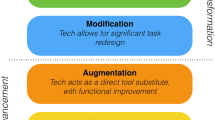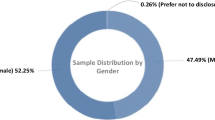Abstract
The purpose of the article is to describe the trainings implemented as part of the project “E-Active Residents of the Kuyavian-Pomeranian and Łódź Voivodeships” and to present the results of partial assessment of the level of digital competence of 75 training groups (837 participants) recruiting from selected municipalities of the Kuyavian-Pomeranian Voivodeship (Aleksandrów Kujawski, Chełmża, Lipno, Lubanie, Radziejów, Stolno, and Śliwice). The project is implemented as part of the Digital Poland Operational Program for 2014–2020 by the Płużnica Commune Development Association in partnership with the Polish Ministry of Digital Affairs and the Foundation of Active Development Initiatives. The authors limit themselves to presenting results of 75 trainings only in the municipalities of the Kuyavian-Pomeranian Voivodeship, in which they had conducted the trainings on their own, in the capacity of certified instructors of digital competences, in the period of December 2018 – end of June 2019. Each participant of the training was obliged to take a pre-test consisting in 10 single-choice questions, that verified his digital competences (like use of search engines, digital resources, e-administration services, tools of cybersecurity). At the end of the training (consisting of the lecture with the presentation of tools) each participant had to solve the post-test to validate his knowledge (again, 10 single-choice questions with the pass threshold score of 75% of correct answers). Comparing the results of both tests, the authors of this article assessed the level of digital competence of participants’ group before and after the trainings. The conducted analyses proved that all the training groups increased their levels of digital competences. In the case of almost 55% of groups, an increase by one level was evidenced (51% for average to high competences, and 4% for low to average competences), and in the case of 35% of groups — by two levels (from low to high competences). Slightly above 10% of groups increased their already high level of competences that was featured initially. The obtained results are the evidence of the high effectiveness of the trainings. In their final outcome, as much as 72 training groups increased their initial levels of digital competences to the high level, and 3 to the average level. There was no group reported with a drop in the level of competences. The results of analyses indicate high effectiveness of the trainings conducted within the scope of the “E-Active Residents of the Kuyavian-Pomeranian and Łódź Voivodeships” project – at least with respect to the Kuyavian-Pomeranian Voivodeship. A large number of participants featuring average and low digital competences (89% before the training and 96% after the trainings) may be evidence for the unsatisfactory level of digital competences in Poland. On the other hand, a relatively high interest in the trainings among the seniors (aged 61 or older), may indicate that there is still a considerable need in Poland for initiating actions countering the digital exclusion.
Similar content being viewed by others
Notes
This index contains a detailed evaluation of five fields: level of development of the telecommunications and IT infrastructure (connectivity), society’s digital competences (human capital), usage of the Internet resources, communication and making transactions over the Internet (usage of the Internet), digitization of companies and e-commerce (integration of digital technologies) and access to e-administration and e-health services (digital public services). [European Commission 2019a].
Digital skills or digital competences are understood as “a range of abilities to use digital devices, communication applications, and networks to access and manage information. They enable people to create and share digital content, communicate and collaborate, and solve problems for effective and creative self-fulfilment in life, learning, work, and social activities at large” [UNESCO 2018].
Kuyavian-Pomeranian Voivodeship is located in the central-north part of Poland. It has a surface of 18 thousand square km and counts 2,1 mln inhabitants. Voivodeship divides into 19 poviats and has 52 cities and towns. Social and economic indexes of the voivodeship are Poland’s average. Voivodeship has two capitals – Bydgoszcz (governor’s office) and Toruń (local governmen’s office). These cities, together with Grudziądz and Inowrocław are main centres of chemical, machine and electrical engineering, food processing, textile, pulp, mineral and printing industry. The region’s economy’s ratio is services – production – agriculture. Kuyavian-Pomeranian Voivodeship is a region of an outstanding natural environment, touristic attractions, historical sites and vibrant culture and art activities. There are a dozen or so higher education institutions in the region, like The University of Nicolaus Copernicus in Toruń, The University of Casimir the Great and Technological-Natural University, both situated in Bydgoszcz [Dolecka 2013].
References
Bennett, M. (2017). Digital Inclusion is a STAR for Supporting Communities. Accessed September 30, 2020. https://supportingcommunities.org/latest-news/2017/3/8/digital-inclusion-is-a-star-for-supporting-communities.
Dolecka, M. (2013). Kuyavia and Pomerania, Poland. Accessed September 30, 2020. https://s3platform.jrc.ec.europa.eu/documents/20182/101069/kUYAVIA+AND+ pOMERIANIA.pdf.
European Commission. (2019a). The Digital Economy and Society Index (DESI) 2019. Accessed September 30, 2020. https://ec.europa.eu/digital-single-market/en/desi.
European Commission. (2019b). The digital economy and society index (DESI). National Report Poland 2019. Accessed September 30, 2020. https://ec.europa.eu/newsroom/dae/document.cfm?doc_id=60000.
Falloon, G. (2020). From digital literacy to digital competence: The teacher digital competency (TDC) framework: Education technology Research and Development. Accessed September 30, 2020. https://doi.org/10.1007/s11423-020-09767-4
Foundation of the Active Development Initiatives. (2018). E-Active platform for the residents of the Kuyavian-Pomeranian and Łódź Voivodeships. Accessed September 30, 2020. https://platformakpl.e-aktywni.online.
Gallardo, R. (2019). Bringing Communities into the Digital Age. State and Local Government Review, 51(4), 233–241.
Huggins, R., & Izushi, H. (2002). The Digital Divide and ICT Learning in Rural Communities: Examples of Good Practice Service Delivery. Local Economy: The Journal of the Local Economy Policy Unit, 17(2), 111–122.
Madon, S., Reinhard, N., Roode, D., & Walsham, G. (2009). Digital inclusion projects in developing countries. Processes of institutionalization: Information Technology for Development, 15(2), 95–107.
Ministry of Digital Affairs. (2018). E-Active. Standard for Digital Competences Requirements. Accessed September 30, 2020. https://e-aktywni.online/wp-content/uploads/ 2018/07/zał-5-Standard-kompetencji-cyfrowych-do-osiagniecia-w-ramach-szkolen_04082017.pdf.
Olofsson, A. D., Fransson, G., & Lindberg, J. O. (2020). A study of the use of digital technology and its conditions with a view to understanding what ‘adequate digital competence’ may mean in a national policy initiative. Educational Studies, 46(6), 727–743. https://doi.org/10.1080/03055698.2019.1651694.
Osuchukwu, N, P. (2019). Teaching Digital Skills in Rural Nigeria. Accessed September 30, 2020. https://www.ifla.org/node/92355.
Ottestad, G., Kelentrić, M., & Guðmundsdóttir, G. B. (2014). Professional Digital Competence in Teacher Education. Nordic Journal of Digital Literacy, 9(4), 243–249.
Pettersson, F. (2018). On the issues of digital competence in educational contexts – A review of literature. Education and information technologies, 23, 1005–1021.
Płużnica Commune Development Association. (2018). E-active residents of the Kuyavian-Pomeranian and Łódź Voivodeships. Description of the project. Accessed September 30, 2020. https://e-aktywni.online/kujawsko-pomorskie-lodzkie/opis-projektu.
UNESCO. 2018. Digital skills critical for jobs and social inclusion. Accessed September 30, 2020. https://en.unesco.org/news/digital-skills-critical-jobs-and-social-inclusion.
Vuorikari, R., Punie, Y., Carretero, S. and Brande, L. Van den. (2016). DigComp 2.0: The digital competence framework for citizens. Update phase 1: The conceptual reference model. Accessed September 30, 2020. https://op.europa.eu/en/ publication-detail/−/publication/bc52328b-294e-11e6-b616-01aa75ed71a1/language-en.
Author information
Authors and Affiliations
Corresponding author
Additional information
Publisher’s note
Springer Nature remains neutral with regard to jurisdictional claims in published maps and institutional affiliations.
Rights and permissions
About this article
Cite this article
Kowalska-Chrzanowska, M., Krysiński, P. & Karwowski, M.P. Digital competences of residents in Kuyavian-Pomeranian Voivodeship in the light of the polish training project “E-active”. Educ Inf Technol 26, 3427–3444 (2021). https://doi.org/10.1007/s10639-020-10411-0
Received:
Accepted:
Published:
Issue Date:
DOI: https://doi.org/10.1007/s10639-020-10411-0




